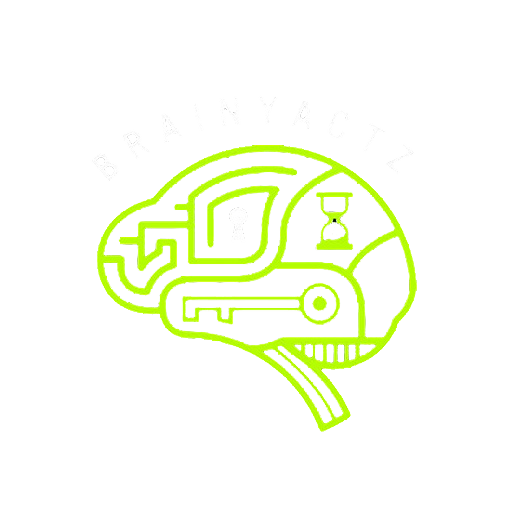Escape room scenarios have emerged as an innovative approach to leadership development, blending science-based concepts with immersive experiences. This unique curriculum challenges participants to solve puzzles and overcome obstacles, mirroring real-world leadership situations while reducing anxiety through gamification. The effectiveness of these programs has garnered attention from researchers and HR professionals alike.
In this article, we’ll explore how to measure and evaluate the impact of escape room-based leadership training programs, providing insights for organizations looking to enhance their leadership development initiatives.
Key Takeaways
- Escape rooms offer immersive leadership training experiences that develop critical thinking and teamwork skills
- Effective evaluation of escape room training requires comprehensive data collection and analysis methods
- Participants report significant improvements in decision-making, communication, and problem-solving abilities after escape room training
- Tailoring escape room scenarios to specific organizational goals enhances their effectiveness in leadership development
- Overcoming challenges in escape room implementation requires innovative strategies and careful design considerations
Understanding the Role of Escape Rooms in Leadership Training

Escape rooms have emerged as innovative tools for leadership training, blending elements of educational technology and strategy to create immersive learning experiences. These interactive scenarios challenge participants to use their perception and problem-solving skills, mirroring the complexities of real-world leadership situations. By incorporating intricate puzzle designs, escape rooms offer a unique anatomy of leadership development, allowing teams to practice critical thinking, communication, and collaboration in a controlled yet engaging environment. This approach to training has gained traction among organizations seeking to cultivate core leadership qualities through hands-on, experiential learning methods.
Defining Escape Rooms as Interactive Learning Tools
Escape rooms serve as dynamic interactive learning tools in vocational education, including nursing, by simulating high-pressure scenarios requiring critical thinking and teamwork. These immersive environments generate valuable data on participants’ decision-making processes and problem-solving abilities. The debriefing sessions following the escape room experience allow for in-depth analysis of leadership behaviors and team dynamics, providing actionable insights for skill development.
The Link Between Escape Rooms and Leadership Development
Studies in gerontological nursing have established a strong link between escape room scenarios and leadership development. These immersive experiences allow participants to confront their biases and improve decision-making skills under pressure. Rigorous evaluation methods and peer review processes have validated the effectiveness of escape rooms in fostering critical leadership competencies:
- Enhanced problem-solving abilities
- Improved communication skills
- Increased adaptability to changing situations
- Strengthened team collaboration
- Developed crisis management capabilities
Core Leadership Qualities Honed in Escape Room Scenarios
Escape room scenarios cultivate core leadership qualities essential for success in various fields. These immersive experiences challenge participants to solve complex problems under time constraints, mirroring real-world situations that demand quick thinking and effective decision-making. Through these simulations, leaders develop critical skills such as problem-solving, teamwork, and communication, which are vital for ensuring patient safety in medical settings. The hands-on nature of escape rooms provides a practical alternative to traditional lecture-based training, allowing participants to apply their knowledge and skills in a controlled environment without the need for a specific license:
- Enhanced critical thinking and decision-making abilities
- Improved team collaboration and communication skills
- Increased adaptability to high-pressure situations
- Developed crisis management capabilities
- Strengthened ability to delegate tasks effectively
Methodology for Evaluating Leadership Skills Post Escape Room Training

Evaluating the impact of escape room scenarios on leadership skills development requires a comprehensive approach that considers the unique learning environment these experiences provide. This methodology encompasses designing effective evaluation strategies, carefully selecting participants, and employing appropriate tools to measure leadership skills. By addressing these key areas, organizations can gain valuable insights into how escape room training influences leadership competencies across diverse groups, including Generation Z.
The evaluation process must be tailored to capture both quantitative and qualitative data, ensuring a holistic assessment of leadership growth. While some evaluation materials may fall under Creative Commons licenses, developing custom metrics that align with specific organizational goals and human-centric leadership qualities is essential. This approach allows for a nuanced understanding of how escape room experiences contribute to leadership development beyond traditional advertising or classroom-based methods.
Designing an Effective Evaluation Strategy
An effective evaluation strategy for assessing leadership skills after escape room training incorporates diverse data collection methods tailored to the unique challenges posed by the pandemic. Career centers can leverage interprofessional education approaches to design comprehensive assessments that capture both individual and team performance metrics. These evaluations should reflect the evolving nature of leadership in various professions, ensuring relevance and applicability to real-world scenarios.
Selection Criteria for Participants
When selecting participants for escape room-based leadership training evaluations in higher education, researchers must consider diverse backgrounds and experience levels to ensure representative samples. A pre-training questionnaire can enable organizers to gather relevant demographic information and assess baseline leadership skills. Rigorous selection criteria, grounded in current literature, help ensure the reliability of study results and provide valuable insights into the effectiveness of escape room scenarios across different participant groups.
Tools and Techniques for Measuring Leadership Skills
Evaluating leadership skills after escape room training requires specialized tools and techniques tailored to this unique teaching method. Researchers have developed validated assessment instruments that measure key leadership attributes, such as confidence and decision-making abilities, in nurse education contexts. These tools often combine quantitative metrics with qualitative feedback, providing a comprehensive view of skill development. A notable example is the Leadership Skills Assessment Tool (LSAT), which has gained recognition through citation in peer-reviewed journals for its effectiveness in measuring leadership growth following immersive training experiences:
- Pre- and post-training surveys
- Observational checklists for facilitators
- 360-degree feedback assessments
- Scenario-based evaluation exercises
- Reflective journaling prompts
Assessing the Feedback From Participants on Escape Room Training

Assessing participant feedback is crucial for understanding the effectiveness of escape room scenarios in developing leadership skills. This process involves collecting and analyzing responses from individuals who have undergone the training, providing valuable insights into the perceived impact on their leadership abilities.
Participants often highlight how these immersive experiences challenge their creativity and discipline, pushing them to apply their skills in ways that traditional college exams cannot. By examining this feedback, organizations can identify areas for improvement and refine future training sessions, ensuring that escape room scenarios continue to evolve as powerful tools for leadership development. This approach allows for a comprehensive evaluation of the training’s impact, helping to bridge the gap between theoretical knowledge and practical application in real-world leadership situations.
Collection and Analysis of Participant Feedback
Conducting a randomized controlled trial provides valuable insights into the effectiveness of escape room scenarios for leadership development. Teachers and facilitators collect participant feedback through surveys, interviews, and observation, often incorporating riddles or puzzles to assess problem-solving skills. Researchers then apply thematic analysis techniques from psychology to identify recurring patterns and themes in the data, revealing the impact of escape room training on leadership competencies.
Insights on the Perceived Impact on Leadership Abilities
Participants in escape room workshops consistently report a significant perceived impact on their leadership abilities. Their feedback highlights the unique experience of applying leadership skills in a high-pressure, time-constrained environment. Scholars have published articles on Google Scholar measuring the effectiveness of these scenarios in developing community leadership. The immersive nature of escape rooms provides a powerful tool for self-assessment and skill development:
Suggestions for Improvement and Future Training Sessions
Participants in escape room training often suggest incorporating more innovative challenges to enhance leadership development. They recommend creating diverse scenarios that test different aspects of leadership, such as crisis management or strategic planning, to provide a more comprehensive learning experience. Future sessions could benefit from increased personalization, allowing teams to tailor the difficulty level to their specific needs and motivations. Expanding the physical space of escape rooms or utilizing virtual reality technology could offer new dimensions to the training, potentially simulating real-world leadership environments more accurately. Additionally, integrating elements from nurse education today could broaden the application of escape room training across various professional fields.
Challenges and Considerations in Escape Room Leadership Training

Escape room scenarios for leadership development present a unique universe of challenges and considerations. These serious games simulate real-world leadership situations like a laboratory experiment, but their execution can encounter obstacles. A comprehensive literature review reveals that while escape rooms offer immersive learning experiences, they require careful design and implementation to maximize their effectiveness. Identifying common hurdles, developing strategies to overcome them, and tailoring the simulations to specific leadership competencies are crucial steps in creating impactful training programs.
By addressing these challenges, organizations can harness escape rooms’ full potential as innovative tools for enhancing leadership skills.
Identifying Common Obstacles in Training Execution
Implementing escape room scenarios for leadership training often encounters several common obstacles. Researchers frequently use Likert scales to measure participants’ emotions and perceived effectiveness, revealing challenges in instructional design and interprofessional collaboration. Emergency medicine professionals, for example, may struggle to balance the need for realistic scenarios with the constraints of physical space and time limitations. These obstacles can impact the overall learning experience and require careful consideration in the planning stages:
Strategies for Overcoming Identified Challenges
Overcoming challenges in escape room leadership training requires innovative strategies that address multiple dimensions of learning. Research articles in medicine and education suggest incorporating ethical scenarios to enhance decision-making skills while focusing on teamwork. Instructors can adapt class structures to accommodate diverse learning styles, ensuring that all participants benefit from the experience. By implementing these strategies, organizations can create more effective and engaging escape room scenarios:
Considerations for Tailoring Escape Rooms to Leadership Development
Tailoring escape rooms for leadership development requires careful consideration of the gamification of learning principles to ensure alignment with specific leadership goals. Medical schools in Spain have successfully integrated these scenarios into their curricula, demonstrating the versatility of escape rooms across different educational contexts. Designers must balance the complexity of puzzles with the intended learning outcomes, ensuring that learners are challenged without becoming overwhelmed, thereby maximizing the effectiveness of the training experience.
Conclusion
Escape room scenarios offer a powerful and innovative approach to leadership skills development, providing immersive experiences that challenge participants to think critically, communicate effectively, and adapt to high-pressure situations. Evaluating the impact of these scenarios is crucial for organizations to understand the effectiveness of their training programs and make data-driven improvements. Through comprehensive assessment methods, including pre-and post-training surveys, observational checklists, and participant feedback analysis, organizations can measure tangible improvements in key leadership competencies such as decision-making, team collaboration, and stress management. By continually refining and tailoring escape room scenarios based on evaluation results, organizations can create more targeted and impactful leadership development programs that prepare leaders for the complex challenges of today’s business environment.

